|
Welcome to November where it is definitely not November-esque weather yet. It was a pretty quiet week, with only one item of note and a lone beer to comment on. The item of note was an interview with Yuval Noah Harari on 60 Minutes. Harari is known for his books "Sapiens", "Homo Deus", and "21 Lessons for the 21st Century". I have read Sapiens and Homo Deus and am a fan of Harari as a result. The interview certainly delves into territory consistent with those books, with statements such as "Within a century or two, Earth will be dominated by entities that are more different from us than we are different from chimpanzees", and how today's technology will allow us to "a new species of human".' While interesting and thought-provoking, the main takeaway for me was Harari's comments on the importance of data. Harari commented that "data is worth much more than money". Interviewer Anderson Cooper's soundbite was that "data is the key". Harari raised concerns about how biometric data, data about what is going on inside our bodies. Inside of the surveillance we allow upon ourselves now - surveillance of what we read, watch, eat, date - Harari warns that we are moving to surveillance of our body and our health. To his credit, Harari does acknowledge the power of the data we have about our bodies. He says that our times are not just dystopian, but also utopian. The interview is worth watching, whether you are a fan of Harari and have not yet discovered him. As an aside, Cooper's "data is the key" soundbite instantly reminded me of Ben Kingsley in "Sneakers". "There's a war out there, old friend. A world war. And it's not about who's got the most bullets. It's about who controls the information. What we see and hear, how we work, what we think... it's all about the information!" - Ben Kingsley as Cosmos, in "Sneakers" I am going to rewatch that movie for the first time in well over a decade. It will be interesting to see how well it holds up. 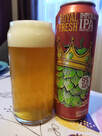 New Drinks: Just one new beer this week, bringing the unique check-ins on Untappd to 827. This was the Deschutes Royal Fresh Imperial IPA. 3.75
0 Comments
 Greetings from a slightly colder than usual 53.5° north latitude. It is not cold enough for the entire day to stay cold, but that is likely not far into the future. However, it is cold enough that bigger gloves or mitts are required for early morning rides. Riding at -5 C without good gloves or mitts is a very painful experience. Beyond a few rides which I will give an update on below, a number of good listens and views, there was a great gaming experience this week, and two new beers. Let's jump in to the gaming story first. If you look up role-playing on Wikipedia, the article branches into the various types of role-playing and then provides this definition for role-playing games, or RPGs: A role-playing game is a game in which the participants assume the roles of characters and collaboratively create stories. Participants determine the actions of their characters based on their characterisation, and the actions succeed or fail according to a formal system of rules and guidelines. Within the rules, they may improvise freely; their choices shape the direction and outcome of the games. --Wikipedia The key concept is that the story is created collaboratively. The Game Master needs to be in charge at least to keep the game following within the prescribed rules, but the actual story that is created is the responsibility of everyone involved. As a GM, I think the key is to provide lots of options for the players and to be prepared enough to be flexible if the players do something unexpected. It is important to be prepared but to not let that preparation narrow your options. Having a series of encounters that your players must do in order at a prescribed time is a recipe for either frustrated players or for you to be unable to proceed because you are not prepared. In our recent session this week, the party needed to travel and I had three potential encounters planned. The first one was with a travelling merchant. I knew there would be nothing exchanged beyond information, but I was hopeful that the players would engage as there was one bit of flavor and information I wanted to get across. The second encounter was completely optional and I tried to describe it in a way that they would not be forced to engage with it. They ended up doing what I hoped they would because I was able to give them a reward that will be useful. To that point in our session, we had two encounters that were engaging and I think memorable. I was struggling though because both encounters went exactly how I thought they would, and that made me feel like I was railroading them. In the parlance of the game designers I follow online, I felt like I was taking away player agency. This concern of taking away player agency was weighing on me because the third encounter was one that regardless of how the rest of the session had gone I needed the players to have. This encounter was really like a Talking Notice Board that tells the players "You are hereby requested to go do such-and-such and then report over yonder." There is nothing wrong with this of course, as long as the players feel they can do something other than mindlessly follow the orders of the Talking Notice Board. It might have been a reaction from the players against two encounters that they felt they had to engage with, but their reaction to the Talking Notice Board was one of sarcastic enthusiasm. "Yes, sir, right away sir." "We'll be sure to do that right away, nudge, nudge, wink, wink." And so they did not report in. They might check in during the next session, but for this week, they completely ignored the "request". They instead went for a drink and a meal and then proceeded to find a room at the fleabag inn instead of the nice place I assumed they would stay at. This resulted in three fabulous role-playing sessions, one with each player. A new ally was found, a super reward was given to the party, and a really touching story was created. I am really glad my first two encounters went the way they did, but I was prepared for the players to not engage with either. Our collective story would not have suffered if those encounters were ignored, but the world is more alive and the players have more knowledge about how to act and react as a result of both. However, when we look back at the game, we will see that the moments with the player agency at its most free were the ones that will have the most impact on the long-term story we are creating. That required preparation on my part, but in a much different way than the scripted set pieces I created. The last thing I will say about our game is that in a three hour session I rolled dice exactly zero times. It was completely role-playing and I all I had to do was talk. And laugh, and smile, and have fun. New Music: There were a few good music finds this week. The first album was Lucinda Williams' "Live @ The Fillmore", which was released in 2005, and was a recording from a 2003 concert. (It would be great to see a concert at The Fillmore!) (It would be great to see a show anywhere!). This album was 22 songs over two volumes and was filled with Williams' gravelly singing. Volume 2 was that the better of the two, in my opinion, with great versions of Atonement, Pineola, Righteously, and others. Her voice really shone on Volume 2. Switching gears completely, the second album was Massenet's opera, Thaïs. I have switched my weekend radio listening recently, and am really enjoying getting back into "Saturday Afternoon at the Opera" on CBC. Host Ben Heppner does a great job of helping listeners like me understand the story and the music. Last up this week was a single called "Who's Gonna Stop Me". This was a collaboration between Portugal, The Man, and Weird Al Yankovich. It was a good song, but I have to admit I probably listened to it much more intently just because of Weird Al's inclusion. I am not saying that it is not a good song, but I do feel I would have given it less of a listen if Weird Al was not part of it. The other music item this week was a great interview on Tidal with Chuck D. This might have been the first interview I have seen with Chuck D. I enjoyed his stories especially the one about how Jam Master J convinced Chuck D to become a recording artist. The best part though were two quotes that really made me think. The first quote was Chuck D quoting Bruce Lee. "I cannot teach you. I can only help you explore yourself." --Chuck D quoting Bruce Lee The insight in that quote is enormous. The power to change and to grow is in you and you alone. There is no magic potion or methodology or drug or app that can teach you to grow as a person if you do not want to grow. The second quote was even more powerful, and I think this is something that I can empathize with and work to change, but I think it is impossible for me to really understand it being a white man. All I can do is listen and support. If you black, it's the side you on versus the side that hates you. --Chuck D Great stuff from a musical legend. Cycling Update: I closed off a couple segments on the way to Campbell River on my virtual cross-Canada tour. I need to pick up my pace a bit. At this rate, it will take me four years to finish the trek. New Beers:
Two new beers this week. Both were good, but neither were great. Beer #691 was the Galactic Space Dragon IPA from Odin Brewery Company. This had some good pineapple citrus juiciness, not much hops, quite hazy. Tasty but would have liked more hops. (3.5 / 5) Beer #692 was the Earl Grey Wheat from Collective Arts. I am a big fan of Collective Arts, so this one was a bit of a disappointment. This could have been a really interesting take on witbier but it was pretty bland. It was refreshing though, just nothing spectacular. (3.0 / 5) Greetings from 53.5° north latitude, where the rain has subsided and the COVID numbers are starting to head back up. This week was populated with lots of reading, a bit of listening, a new beer, and a handful of new words. I listened to two really interesting podcasts this week. The recent Longform interview with Maria Konnikova was a particular treat because I had just discovered her writing based on her endorsement for David Epstein's book "Range" that I wrote about a couple weeks ago. Being the kind of reader that takes stock in book endorsements, I had looked up Konnikova when I read her name on the cover of Range. So being a fan of Longform and having some knowledge of who she was, I was very interested in this interview. Konnikova had some good insights in physchology, poker, luck, and human nature. My biggest takeaway though was her comment about her podcast, "The Grift". She said that she wrote 10,000 words for each episode, and at ten episodes for the series, that totals 100,000 words. According to Konnikova, that is a full book. So a full book at 100,000 words is a good metric for an aspiring writer, or someone who would like to develop a podcast. I'll be sure to pass this learning on if I ever find someone who fits either or both of those criteria.  The other podcast episode worth mentioning this week was the "Tick Tock for TikTok" episode of Rational Security. Of particular note was the discussion about Huawei. I have written about Huawei on this site a few times (here and here). As usual, the team at Rational Security highlight a number of issues while discussing the various and important nuances of the topic, in particular how the US has seemingly forced the UK to abandon its long-standing approval of Huawei technology through the use of sanctions. I got the impression from the discussion that this approach has the short-term win that the Trump administration is looking for but at the cost of long-term erosion of a very important relationship with the UK. Huawei and China aren't going away - we need to figure out how to address them soon. Reading Pile: I was able to plow through two books this week. The first for this week and Book #27 for 2020 was Eddie Izzard's autobiography, "Believe Me". I really like Izzard's comedy, especially his bit about the Death Star Canteen. Watch that here, or watch the totally clever Lego adaptation here. This autobiography was a bit of a rambling story that almost came together to communicate Izzard's personal life vision. The description of what he went through when he first came out was gut-wrenching, and it was interesting to read about how many failures and setbacks he had in his life to get to the point where he is an internationally celebrated comic, actor, and activist. I would totally love to meet him and have a chance to chat with him, but I'm not going to recommend his autobiography. Book #28 for 2020 was "Artificial Condition", the second book in Martha Wells' Murderbot series. The first Murderbot book was #2 for 2020, and for that I wrote that "the protagonist and narrator is an augmented human designed to be an It instead of a Person, but it has decidedly human impulses and concerns." The second Murderbot builds on that theme, having our hero explore its background while simultaneously struggling with wanting to connect with humans and detach into the void of "media", i.e bing-watching on the future equivalent of Netflix. Really good stuff with a bit of humor, some touching emotional scenes, and enough hooks to make me eager for the next book in the series. New Music: There are two interesting finds to point out this week. First, I missed adding a song to my Music Finds playlist for last week. One of my favorite finds in 2019 was a band called Future Islands, and they released a new song on July 8. "For Sure" is another boppy and poppy song with a great backbeat and the unique vocals of lead singer Samuel T. Herring. I'm biased for sure (see what I did there?), but I liked this new song from the first listen. I added three albums into my Music Finds - Week of 13Jul2020 playlist. I had listened to Yo La Tengo a few times and liked some of their stuff. However, their album "We Have Amnesia Sometimes" was like Emo Gregorian Chants. Hard Pass. I also gave The Chicks, fka The Dixie Chicks but they apparently thought that was a stupid name, a listen with their new album, "Gaslighter". That was pretty good, with a few songs like "Sleep at Night" and "Julianna Calm Down" to be quite catchy. The highlight of the week though was definitely the Bluenote release of a previously unreleased studio album from Art Blakely called "Just Coolin'". Recorded in 1959, the six tracks are a rare treat. Cool era jazz previously unreleased and now available on MQA format on Tidal. It's great living in the future, especially when you can revisit something from the past that only came out in the present. 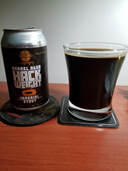 New Beers: Just one new beer this week. I was not planning on trying any new beer this week as I wanted a break, but a friend gave me this to try mainly because he found it undrinkable. The Hack Weight Imperial Stout from O.T. Brewing was decent, but it was quite boozy especially since it was only 8% ABV. I can see why someone (most people) would not enjoy it. It was pretty well done, but not my favorite in this style. (3.0 / 5) New Words:
As I mentioned above, a handful of new words, mostly from the Izzard autobiography. quean [kwēn] NOUN
stem-winder [ˈstemˌwīndər] NOUN
contrariwise [kənˈtrerēˌwīz] ADVERB
crèche [kreSH] NOUN
tragopan [ˈtraɡəˌpan] NOUN
Greetings from 53.5° north latitude. If my weeks had themes, this week's theme would have to be "The Triumph of the Introverts". I could see the struggle and the fatigue in the faces and hear in the voices of my friends and coworkers this last week. What seemed like a holiday a few weeks ago, a chance to hang out, try some new tech, ignore the commute, turned this last week into the slog of quarantine. The fact that we haven't hit the peak yet, that we have a significant amount of time before isolation ends, the fact that we should mentally prepare for another wave in the fall, has all taken its toll on those around me. But not everyone is doing poorly. Some of us, the introverts especially, are faring much better. One might even argue that we were made for these times. If you have a deep-seated need to be in physical contact with someone, you are going to be in a much worse place right now than if connection via video conference is sufficient for you. Mental health issues will be paramount while and after we deal with the physical issues. I'll point out the same mental health support videos that I highlighted in last week's entry. Watch them for yourself and those close to you, and share those with others in case they might benefit as well. Even if you are doing better than most because of your innate personality and genetic makeup, it is highly unlikely that you are immune from mental health concerns. Take care of yourself.  There were a few other COVID-related items worth highlighting this week. The first was this combination sun hat and face shield. My spouse is looking seriously at getting one, but for some reason I just cannot take it seriously. The company selling these hats has various other "Health Protection" items for sale, but the main categories of their products on their web site include "Spring Fashion" and "Accessory and Beauty" so I can't help but feel that this is nothing more than a cash grab. 60 Minutes broadcast an interview with Peter Navarro, who US President Trump appointed to lead the initiative to distribute Personal Protective Equipment. Watch that interview for a quick lesson in deflection and redirection, and to see pushback in action instead of leadership. In the end though, 60 Minutes comes out on top with this interview with their mic-drop moment when they highlighted their previous reporting on pandemic response after Navarro openly challenged their role and leadership. And speaking of a lack of leadership, take a read of this article and a look at the picture below to see what happens when poor leaders lead poorly. Note the vitriol of the Trump supporters with their MAGA hats and their "Don't Tread on Me" flags, all because of the American cellular-level need for loudly protecting personal freedoms, rekindling the "age-old U.S. debate over government regulation vs. personal liberty", fueled by a leader who just cannot lead.  There is more to life, well my life at least, than COVID, so let's talk about something else for a while, shall we? Cybersecurity is important to everyone, and I would be remiss if I did not pass on this note about CIRA's new Internet protection service they call "Canadian Shield". CIRA touts their DNS privacy service, ransomware blocking, and pornography filtering service as "enterprise-grade protection for all Canadians". It is super easy to setup and free. If you are Canadian and don't already have access to a similar service or commercial offering, there is no reason why you shouldn't configure your home network using CIRA's Canadian Shield settings.  Reading Pile: There was a lot of reading in my life this week, and I was able to finish one small book. Book #14 for 2020 was Susan Sontag's "Illness as Metaphor", the third book in our social science reading group hosted by Adam Greenfield. We only read excerpts of the first two books, but this week we read the whole book from Sontag. To be fair, it clocked in at a paltry 88 pages, but I will count it as a full book regardless. There was a lot of very powerful language in this book; language that made me think about the social "value" of diseases, and how two diseases can be viewed so differently. A lot of the book is focused on tuberculosis, and early in the book, Sontag discusses how the consumption and wasting comes from TB has lead to the skinny mindset in the twentieth century. Twentieth-century women's fashions (with their cult of thinness) are the last stronghold of the metaphors associated with the romanticizing of TB in the late eighteenth and early nineteenth centuries. Sontag then contrasted the new waifish chic brought along by TB with how their male contemporaries stereotyped themselves. Gradually, the tubercular look, which symbolized an appealing vulnerability, a superior sensitivity, became more and more the ideal look for women—while great men of the mid- and late nineteenth century grew fat, founded industrial empires, wrote hundreds of novels, made wars, and plundered continents. I'm glad we read Sontag's book, but I couldn't help but feel it was dated. The book quotes Kafka a couple times as he ultimately died from TB in 1924. One quote from him from 1920 said that he had an illness of the mind that had moved to his body. Sontag's book was written in 1978, meaning there is a span of 58 years between his quote and Sontag's book. At present in 2020, there have been 41 years since Sontag wrote this book, which is getting close to the gap between Kafka and Sontag. Think how much has changed in collective thinking in those 41 years, and it seems that a 2020 Sontag book on the same topic would arrive at new conclusions. It is unfortunate that Sontag passed away so many years ago, as it would be insightful to read a 2020 version with a new foreword by the author. New Words:
Lots of new words this week from a combination of War and Peace, The Count of Monte Cristo, Sontag's book discussed above, and a new science fiction book that I will hopefully be able to finish this week. corvée [kôrˈvā] NOUN (historical)
hortatory [ˈhôrdəˌtôrē] ADJECTIVE
etiology [ˌēdēˈäləjē] NOUN
enervate [enervate] VERB
garret [ˈɡerət] NOUN
parvenu [ˈpärvəˌn(y)o͞o] NOUN (derogatory)
rachitis [rəˈkīdəs] NOUN
philippic [fəˈlipik] NOUN (literary)
autophagy [ôˈtäfəjē] NOUN (biology)
laity [ˈlāədē] NOUN
exemplum [iɡˈzempləm] NOUN
orgone [ˈôrɡōn] NOUN
apposite [ˈapəzət] ADJECTIVE
semiotic [ˌsemēˈädik] ADJECTIVE
lacuna [ləˈk(y)o͞onə] NOUN
orthorexia [ˌôrTHəˈreksēə] NOUN
perspicacious [ˌpərspəˈkāSHəs] ADJECTIVE
pediment [ˈpedəmənt] NOUN
Greetings from 53.5° north latitude where it is unbelievably, and frustratingly, still winter.
This week saw the world surpass 1.8 million confirmed COVID cases, and the US going over the 20,000 mark to become the country with the most confirmed COVID-related deaths globally. Here in Alberta, we hit 40 deaths so far, but that is a far cry from the estimated range of 400 and 3,100 deaths as modeled by AHS and presented to the public by the Premier (video below). We are only 10% of the way to the best-case scenario right now, which is really staggering. Is there a bright side to all of this? Is there something positive we can take away? I think there is, whether it be the wonderful in-home concerts we can watch, the positivity from so many people, or the companies around the world retooling so they can focus on creating life-saving equipment. Plus so many of us are finding ways to stay connected even if we are alone. I remember back in my twenties hearing for the first time that there was a difference between being alone and being lonely. If we can stay alone or at least only together with our household while still finding ways to stay connected, we can come out of this okay. Don't get me wrong, the world will be changed, and mental health will be greatly impacted in addition to the more obvious physical issues. But that doesn't mean the world will be or has to be worse than it is now.
Reading Pile:
I am taking advantage of as many opportunities as possible to do something new. The most obvious at this point is a reading group I joined hosted by author Adam Greenfield. This isn't a typical book club or even a contemporary international reading, but rather a group reading about specific theories and books in the social sciences.
Our first book was "Notes Toward a Performative Theory of Assembly" by Judith Butler. My proviso for this is that I didn't read the whole book like the rest of the group. I thoroughly read about ten percent and then skimmed the rest. Butler's reputation of writing obtuse and hard-to-read prose is apparently well-deserved. Not that I knew about Butler's reputation, or even Butler at all, prior to the group discussion.
Our second book which we delved into this week was "The Wretched of the Earth" by Frantz Fanon. Again, never heard of him but his writing was much more consumable albeit dated. Written in 1961, Fanon wrote in the language of the day: Man this, man that, women as an object. Trying to get past that, we focused on the chapter "On Violence" which discusses the need for the colonized to stand up to the colonizer.
At the individual level, violence is a cleansing force. It rids the colonized of their inferiority complex, of their passive and despairing attitude. --Franz Fanon
I am grateful for the opportunity to be exposed to different thinking, different intellectuals, and completely different discussions, but I am concerned with my ability to contribute to the ongoing discussion. That said, I did propose that we discuss the use of the "war" moniker and metaphor in our COVID responses and that received enthusiastic support. Cue up some Susan Sontag!
Switching over to the "listening pile" for a minute, I was able to find time to dive into the recent Longform interview with science writer Ed Yong. Yong had just completed a great article on COVID for The Atlantic, which is definitely worth reading in addition to or instead of the Longform interview. While the whole interview was enjoyable, my favourite part was in the first few minutes as they were getting settled and Yong compared his COVID-reality life to a combination of "Groundhog Day" and a Michael Bay movie: stunningly mind-numbing repetition followed by scare-you-out-of-your-seats moments. Yep, pretty much sums up the last month. The last bit of non-fiction reading this week was a throwback to 1997. Back in January, I commented on the Longform interview with Kevin Kelly, former editor at Wired. This 1997 article was co-written by Kelly and comments on the soon-to-be demise of the browser and the coming wonders of push technology. 
It is interesting to read something from twenty-three years ago, especially given that the Internet as we know it was barely a couple years old at the time of publication. A lot has changed, of course. Talk of T1 lines seems antiquated, even though I can remember being proud to commission my first T1 installation not long before that article came out.
We can expect a billion Web pages by 2000. Some of them will even be worth reading. -- Wired, March 1997
Where the article was most prescient was its predictions regarding technology pervasiveness and the dependency content producers would have on advertising. At one point, the authors predict that this new world of push technology, which has somewhat been replaced with notifications, will be "gentle, in-your-face, intermittent, in the background, or always on." The always-on-ness of our world these days is definitely one of our defining societal problems. See my comments from last October regarding Michael Harris's book "Solitude: A Singular Life in a Crowded World". As for their other prediction, some form of the word "advertising" appears eight times throughout the article. Maybe the authors were afforded a crystal ball and could see their magazine's web page covered in ads from their parent company and lifestyle brand, Condé Nast.
On to fiction. First, I am continuing to read "The Count of Monte Cristo" and am thoroughly enjoying it. It holds up quite well at nearly 200 years old. One of my favourite lines so far in the book came in the penultimate paragraph of Chapter XXX, and it really sets up the revenge section of the novel.
I have taken the place of Providence to reward the good; now let the avenging God make way for me to punish the wrongdoer! --The Count of Monte Cristo, Chapter XXX 
I also finished another book this week. Book #13 for 2020 was "Seraphina", by Rachel Hartman. This was a wonderful and unique Young Adult novel, that earns the YA moniker in all the best ways. The eponymous protagonist was not an orphan, which is of course the single worst trope in YA novels, plus was part of the solution but realized she could not cannot do it alone. No pushy teen sidestepping the lame-brained adults in this novel. There was a great message about the importance of family and friends and how solutions are best solved together and not alone. I'm not an expert on the middle ages, but the setting seemed to be a realistic, wealthy monarchy set in a middle ages equivalent world. Hartman was able to introduce IRL middle ages items and terms, such as houpelandde, oud, and sackbut (see the New Words section below for all three), and added to the dragon mythos with new words like saar, saarantras, and dracomachia (you will have to read the book to get definitions for these). All in all, a great novel worthy of your time and energy to read whether you are in the YA time frame or just like a good novel.
New Beers:
Three new beers this week from three different Canadian breweries, Collective Arts, Alley Kat, and Moosehead. The first was the Collective Arts No. 12 IPA which was a nice hazy IPA with a lot of citrus and a refreshing taste. (3.5 / 5). The second was the Alley Kat Westminster Tabby from their Back Alley Brews line. This Extra Special Bitter benefited from the authentic British malts, and according to the label Alley Kat even replicated the minerals in the water from Burton Upon Trent in the UK. It is a shame this is a limited edition beer that isn't sticking around. (3.75 / 5) Last up was the Moosehead Pale Ale. A pale ale is by definition pale which implies not a huge amount of flavor or aroma. Moosehead's Pale Ale was a decent representation of a style that doesn't have a lot going for it, in my opinion. Decent, drinkable, but pretty forgettable. (3.25 / 5)
New Words:
Lots of new words this week, partly because I caught up with all of the words from "Seraphina", but also because of the Fanon, Butler, and Monte Cristo readings. phlegmatic [fleɡˈmadik] ADJECTIVE
probity [ˈprōbədē] NOUN (formal)
postulant [ˈpäsCHələnt] NOUN
superadded [ˌso͞opərˈadəd] ADJECTIVE
houppelande [hüˌpländ] NOUN
oud [o͞od] NOUN
sackbut [ˈsakˌbət] NOUN
auto-da-fé [ˌôdədəˈfā] NOUN
tonus [ˈtōnəs] NOUN
puerile [ˈpyo͝orəl, ˈpyo͝orˌīl] ADJECTIVE
hieratic [ˌhī(ə)ˈradik] ADJECTIVE
enchiridion [ˌeNGkəˈridēən, ˌenkī-] NOUN (formal)
ab ovo [ab ˈōˌvō, äb] ADVERB
salutary [ˈsalyəˌterē] ADJECTIVE
mot juste [ˌmō ˈZHo͞ost] NOUN
apotheosis [əˌpäTHēˈōsəs] NOUN
prevaricate [prəˈverəˌkāt] VERB
redoubt [rəˈdout] NOUN (military)
Greetings from 53.5° north latitude. It has been a really quiet week given that I took it off. Lots of me-time, a few beers, getting ready for the new gaming group I am organizing plus some Kickstarter related gaming news, and a few small projects here and there. Lots of reading as well, with one interesting podcast listened to but no single book finished. Let's dive into the recap of the week that was. 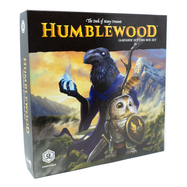 Gaming Update: There was a lot of good news on the gaming front this week. First, I finally received my Kickstarter rewards for the Humblewood 5e campaign setting. This is a campaign I jumped in on back in May that is set in a world of humanoids based off of woodland creatures and birds. The package arrived early this week, all 4.3 kilograms of it. Books, minis, screens, maps, dice. Everything needed to play in the setting. I'm totally looking forward to running a campaign in that world. Next up is a Kickstarter campaign that successfully closed this week. Monsters of the City from Cawood Publishing reached the first stretch goal and will publish their third 5e resource. I own and was really impressed with Monsters of the Underworld and am planning on picking up Monsters of the Feyland on DM's Guild. I have now supported 25 Kickstarter campaigns and I have made some observations. First, the strategy of how to stagger the stretch goals is really important. For Monsters of the City, Cawood decided to put the extra art first and the upgrade to a hardcover book second. Was that smart? I do know that the extra art will make the book better, but having a three-book set with two hardcover books followed by a soft-cover seems to be a mistake. I wonder how many people were put off by not having a hardcover as the first stretch goal or even for the initial target. I also wonder about the value of the stretch goals or if they are just a money-grab. There have been some interesting campaigns recently with one with no stretch goals but a few upgrades for Kickstarter supporters, to another with a ton of Kickstarter Exclusives that won't be available in a retail version. 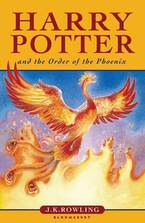 After supporting so many products, I'm comfortable saying that my preference is definitely to make the product better. Dave Kellett of Sheldon and Drive fame does this really well on his campaigns. I have supported five different campaigns of his and he does a great job in improving his books. The first four stretch goals for his most recent "Anatomy of Authors" campaign were all about making the book better (book ribbon, end papers, gloss cover, foil lettering). After that, it was extras and add-ons. I'm going to watch out for that in future campaigns I support, and I think it will impact how and what I fund. Last item on gaming: I have scheduled our first meeting - our Session 0 - for the Casual Yet Committed campaign I have organized on Meetup. I first posted about this a month ago, but only got around to scheduling our first meeting this week. Why such a long delay, you ask? Nerves, I tell you, nerves. It's funny to think that something as seemingly simple and benign as organizing a game of D&D would be so stressful. It was though, and I think it is because it is forcing me to extend myself creatively. Asking a group of strangers to trust you to create and coordinate an ongoing series of events to cooperatively create a story is a much different experience than boardroom presentations, project sponsorship, and developing and mentoring a team. That difference and the uncertainty it created set me back a few weeks. It took me a long time to schedule the first session because I wasn't sure exactly what to do. I was nervous about how people would respond. I was nervous about not being able to do a good job. I think there is a major lesson in this. Years ago my spouse and I made sure we did one new thing each year to push ourselves. That was before senior positions, kids, and MBA school (her, not me), so we haven't sat down to think through a new learning goal for a number of years. However, I think this foray into being the gamemaster for a group of strangers will seriously make up for that. And hey, it should be a lot of fun as well. 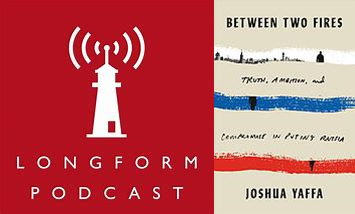 Reading Pile: I only listened to a single podcast this week, but it was a Longform interview so it was definitely time well spent. This week, they interviewed Joshua Yaffa, an American journalist living in Moscow. Yaffa was recently back in America on tour for his new book, Between Two Fires: Truth, Ambition, and Compromise in Putin's Russia. The interview is just shy of an hour and focuses primarily on what it is like to be a foreign journalist in a country run by an authoritarian ruler, who like authoritarian rules everywhere, has control over vast portions of the country's media. I think Yaffa's book will be an important one to read to understand a perspective from Russia that is less about the extremes - Putin versus Pussy Riot, as mentioned in the interview - and more about the people in the middle who had made compromises and have rationalized their current position or opinion. A social study of a society conducted by an outsider from that society who was granted a different level of frankness due exactly because he was an outsider. Looking forward to adding that to the Reading Pile. As I mentioned above, I didn't finish any books this week, but I should be able to knock off a couple this week. That will get me to my goal of four books for the month of February with a week or so to spare. I have a personal improvement (i.e. I can't stand categorizing it as "self-help") book that I might be able to squeeze in this month as well. I do want to give an update on the year-long group reading effort for "War and Peace" that I am in. The end of this week marks the end of Volume I, Part II, and puts us at page 201 out of 1224. So far, it hasn't been much work at all to read the book. The writing is excellent and the story is completely engaging. Cleary this book is a classic for good reason. However, the best part of this has to be reading it as part of a group. I mentioned in late December that I joined a War and Peace reading group on Reddit, and that has been a fantastic experience. (The graphic above is the header image on that particular subreddit.) Engaging with a dozen or so other readers on a daily basis has added greatly to my understanding of the book and to my enjoyment of reading the book. Plus the daily meditations that Brian E. Denton posted on Medium in 2017 are likewise great for building understanding. I can't imagine having to read this book for any literature class without reading it both in this manner and with Denton's chapter-by-chapter analysis. On a related note, my experiences with the Reddit reading groups for War and Peace and "The Count of Monte Cristo" have restored some personal confidence in social media and in Internet discourse. Strip away the ugliness of a social media algorithm (see "Reading Pile" from September 9, 2019), and strip away the dangers of online addiction (see "Reading Pile" from October 14, 2019) and you are left with the promise of a connected network. People seeking out others to connect and learn from each other. It really can be a beautiful medium if not used to exploit and sell. New Beers: This is the week 44 of the Show Notes blog. In my first entry last March, I noted three new beers that week to bring my number of unique beers on Untappd at 534. I hit 631 with the entries this week, which equates to 97 beers in 44 weeks, or 2.20 new beers a week. That is about one new beer every 3.17 days, which is a bit off the pace of 2.74 days between new beers I noted when I started this blog. The first entry this week was the Alley Kat Oatmeal Stout collaboration with Village Brewery. I have logged a lot of Alley Kat beers on this site, and they continue to be a favorite of mine. I'm not nearly as big of a fan of Village, but they have produced some good stuff for sure. In particular, their Blacksmith Dark Ale was really good, so it isn't surprising that I would like what they did with Alley Kat on this collab. This was a fine stout, and a good use of oats to soften the taste. It had a a good long-lasting foamy head, and was flavorful but without distracting tastes. A winner for sure. (3.75 / 5). The next two weren't nearly as good. The Temptation IPA from Legend Seven. If you recall, I have had a few of their beers in the past few weeks out of a six-pack sampler I picked up. This is my least favorite so far, but it was still pretty good. Temptation wasn't hoppy enough to be an IPA, but more of a pale ale. Still pretty decent if not on point for the style. (3.25 / 5) The next one was the Chase 2020 from Blind Enthusiasm. I find Blind Enthusiasm to be quite hit-and-miss, and this one was a definite miss. I couldn't figure out the flavors or the aroma. I'm glad I was driving and only had the 250 mL glass. (2.5 / 5) I do need to give points for Blind Enthusiasm though for their drive to constantly produce different tastes. And on top of that, the food at Biera was awesome so the overall experience was still really good. Luckily for me, I ended this week on a high note. Samuel Smith's Organic Chocolate Stout was really good. I have had some iffy chocolate beers before so was cautious about this one, but it was really good. Mellow aroma, good but not overpowering taste. That is the third beer I have had from Samuel Smith's and all three have been very good. New Words:
Lots of new words. The vast majority of the words this week come from various tape-flagged pages from the first two major sections of War and Peace, Volume I, Parts I and II. importune [ˌimpôrˈt(y)o͞on] VERB
sutler [ˈsətlər] NOUN historical
shako [ˈSHakō, ˈSHākō] NOUN
dolman [ˈdōlmən] NOUN
subaltern [subaltern] NOUN
cellaret [ˌseləˈret] NOUN historical
britzka NOUN historical
calumny [ˈkaləmnē] NOUN
postilion [pəˈstilyən, pōˈstilyən] NOUN
redingote [ˈrediNGˌɡōt] NOUN
cannonade [ˌkanəˈnād] NOUN
elide [ēˈlīd] VERB
propitiate [prəˈpiSHēˌāt] VERB
besom [ˈbēzəm] NOUN
vicissitude [vəˈsisəˌt(y)o͞od] NOUN (vicissitudes)
internecine [ˌin(t)ərˈˌneˌsēn, in(t)ərˈnēsīn] ADJECTIVE
Happy long weekend from 53.5° north latitude. It is amazing how much work can fit into a five day work week. Looking back at the week, there were so many things going on, it is surprising that anything got done at all. Having the ability to focus on a single task at a time seems like such a luxury, such a foreign concept. I wonder if anybody really works like that anymore, or if they ever did. The hyper-specialization in the Industrial Revolution would be a clear example of focus, and similarly before that with a more agrarian society, but has a knowledge worker ever had the ability to focus? It is something work exploring. Podcasts: I did have the ability to focus on one task most of Saturday this week, as I hauled five loads of sod and dirt to the Ecostation. Driving back and forth, burning probably close to half a tank of gas, I was able to plow through a bunch of podcasts, plus I took the train to work two days this week, so I had some time there as well. That is probably the most time I have ever devoted to podcasts in a single week, and there were lots of interesting tidbits as a result.
You can't take everything with you as you move through life" --David Letterman That referred to the bad stuff in life, like regret, shame, and pain. It was a good reminder that you have to move on if you want to make amends with the past and be a better person in the future. I don't know Maron he has always been this good at interviewing people, but I suppose after 1000+ interviews, you hone your skills.
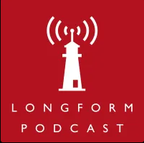 The last of the great interviews was from Longform. The episode I listened to this week was an interview with David Epstein on the arguments for and against specialization at a young age and Epstein's book "Range: Why Generalists Triumph in a Specialized World". I really like Longform as I find the hosts are fantastic interviewers. Casual and relaxed, yet deep enough to hit the important points. As a comparator, listen to the EconTalk interview with Epstein to really see the difference a good interviewer can make. Rounding out the podcasts was the History of Rome podcast, a monumental series that started way back in 2010, and another Freakonomics episode. I plowed through the first four episodes of History of Rome and I can totally see myself finishing all 179 episodes. Episode 2 had an interesting quote: "Might might not make right, but it will make a 1000 year civilization." The Freakonmics episode was "How to Change Your Mind" and the most interesting point was that people fail to differentiate between what they know and what others know. Following this through, there is a difference between the brain (trapped in your skull) and the mind (which is a collective and social construct of the people in your network).
 The other book finished this week was "Zeroes" by Chuck Wendig. This was my first reading from Wendig after following him on Twitter for the last couple years. I enjoyed this book. It reminded me of "Daemon" by Daniel Suarez, but maybe not quite as good. Or maybe it wasn't as good since it really reminded me of a book I had read previously. Anyway, it was a good book, worth the read, and certainly good enough to continue to search out more from Wendig. The Long and Slow Death of Google+: I came across this article from January about how Google shuttered Google+ earlier this year. There is a good summary of the issue in the API and the decision to accelerate the shutdown as a result of that issue. However, the really interesting part of the article was the summary of why Google+ was created and a question as to whether or not Google even cares that Google+ was ultimately a failure. Here's the thing...Google still got what they came for. More of your data. With Google+, Google was able to understand more about you as a Google user. Your profile, address, likes, dislikes, friends, foes, etc. In 2011 maybe we thought that information about us was a fair trade for the ability to communicate with our friends. Maybe we didn't care, or maybe we didn't even think about it. But now in 2019, more of us do think about those tradeoffs, even if that number is still the vast minority of people. I wonder if I will sign up for the next big platform after Twitter. I doubt it. This blog, even if no one reads it, is my response to microblogging like Twitter or Instagram, and is based on the need to say what I want to say in a way I want to say it. If I want to write 1,000 words about the podcasts I listened to, then that's what I'll do, but not with ads inserted by some algorithm. If there is content I want others to know about, then I'll post it here. Do I need to collect entire profile data sets of everyone that reads what I write? What would I do with that? I'm not an advertising platform like Google or Facebook, so I have no need for that. I suppose at some point the need to pay for the infrastructure becomes enough of an impetus to start to look for ways to "monetize". However, maybe the old tip jar model from years gone by or the patron model that is popular these days will be enough. Even if that ever becomes the case, I still can't see what benefit either I or my readers would get from them sharing a full profile of their personal information with me. New Words:
trenchant [ˈtren(t)SHənt] ADJECTIVE
subjunctive [səbˈjəNG(k)tiv] ADJECTIVE
apostasy [əˈpästəsē] NOUN
reify [ˈrēəˌfī] VERB formal
fecund [ˈfekənd, ˈfēkənd] ADJECTIVE
rococo [rəˈkōkō, ˌrōkəˈkō] ADJECTIVE
panoply [ˈpanəplē] NOUN
alacrity [əˈlakrədē] NOUN
zir [ziər] PRONOUN
Interesting people: 60 Minutes interviewed Samuel L. Jackson. I would say I am a fan of Jackson ("Kong: Skull Island" excepted), but I don’t think I ever thought of him as a truly interesting person, any more than any other celebrity. The interview gave me three reasons to rethink that. First, Steve Kroft tries to call out his actions on campus in the 1960’s as part of student protests against the Vietnam war (6’ 20”). Jackson’s reply was a cool “That’s just one day in a life.” In other words, judge me by the course of my life, not by one moment that you see as a weakness. Second, he described his goal for his impact on the stage (13’ 27”): "You want to light it up to the point that when you leave, people want to go with you. I hope that's who I am when I show up.” Third, he desperately wanted to be in the Star Wars prequels, and would not have let ego or pride stop him from doing so, even if the role was only the chance to play a Stormtrooper running across the screen. Comics: IDW released The Highest House in March, 2018 and I only picked up the first two issues a couple weeks ago. The comic is beautiful, and the story is rich and deep. I special-ordered the remaining four issues, and I can’t wait for them to come in. It is also a larger-format comic, which provides more room for the art to shine. Fans of comics and of good fiction should check this out. Life lessons from comics: Speaking of comics, I finished “Atomic Robo and the Spectre of Tomorrow” (another comic from last March that I just got to now), and there is a brilliant quote that I plan on using. “One plan is nothing. Two plans is a plan.” Life lessons from business / self help books: Another great quote this week came from the performance coach, Peter Jensen, in his book, “Thriving in a 24-7 World”. “Focusing on everything is focusing on nothing." Good reads: I just read “Grounded” by Miki Dare, as part of the Tesseracts 20 anthology. Dare created a new world with new ideas with beings that weren’t human in an environment that was totally alien yet entirely relatable, all wrapped around heartbreaking emotion. That is great speculative fiction. New words this week: hi·er·o·phant [ˈhī(ə)rəˌfant] NOUN
whip·saw [ˈ(h)wipˌsô] VERB NORTH AMERICAN whipsaws (third person present) · whipsawed (past tense) · whipsawing (present participle) · whipsawn (past participle) · whipsawed (past participle)
(Whipsaw was used in an article about Trump, so yeah, it was the "cheat or beat / collusion" definition.) New beers:
Three new beers this week. First, two local brews from Analog Brewing. In Another Castle is a peach and mango IPA that I wasn’t a fan of (2.75 / 5). However, their Bull’s Strength strong ale was much more to my liking (3.5 / 5). Finally, the Javalanche coffee stout from Banded Peak Brewing was quite good (3.75 / 5). Reminded me of the Iconic Milk Stout from Stiuation. |
Archives
April 2022
Categories
All
|

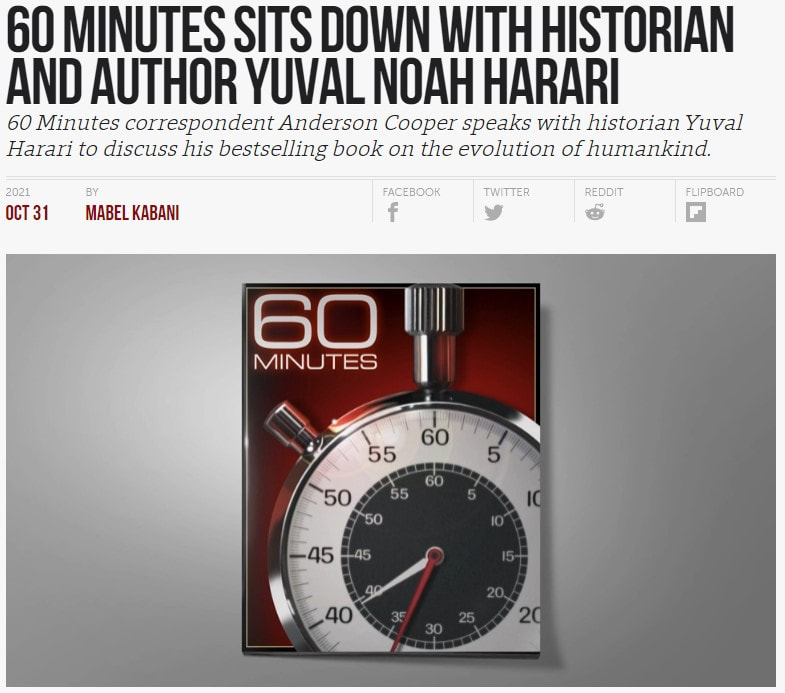
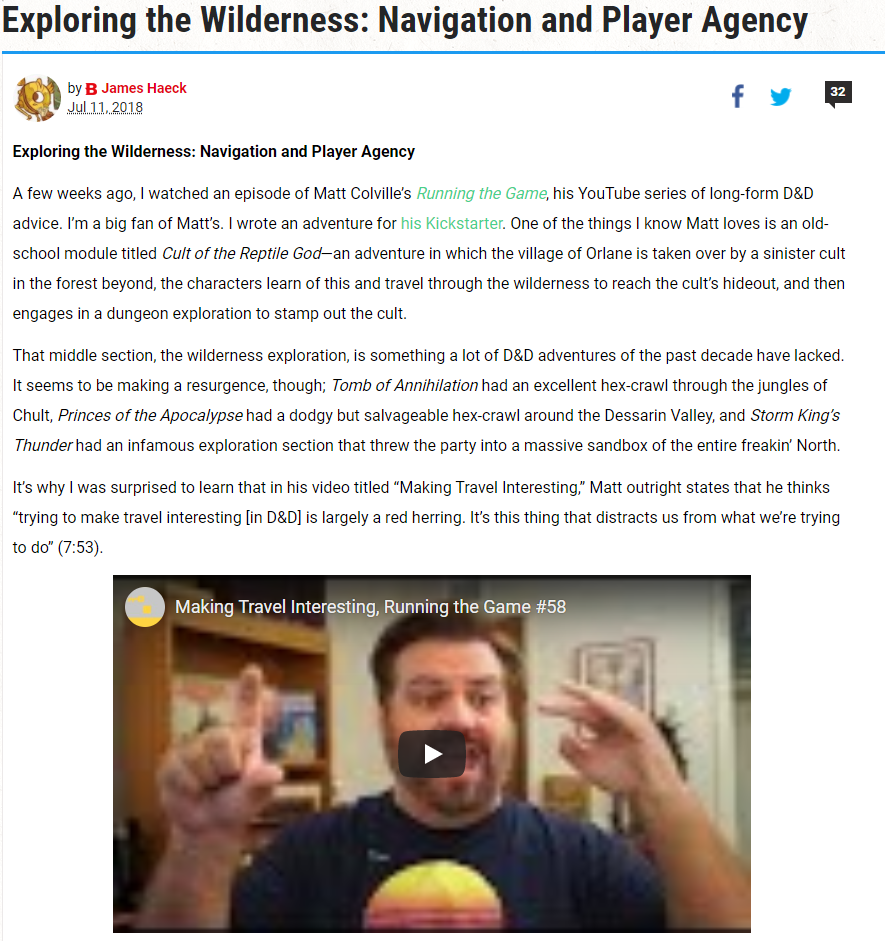

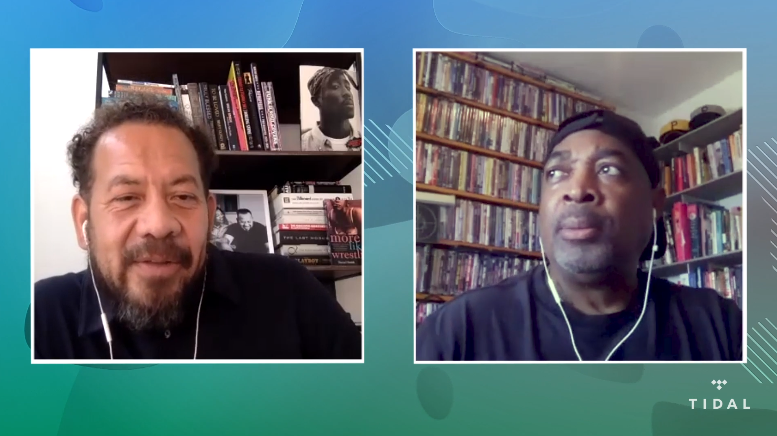

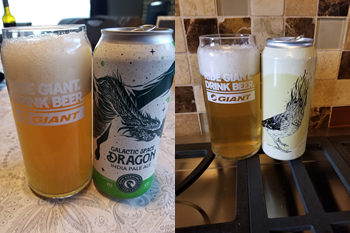



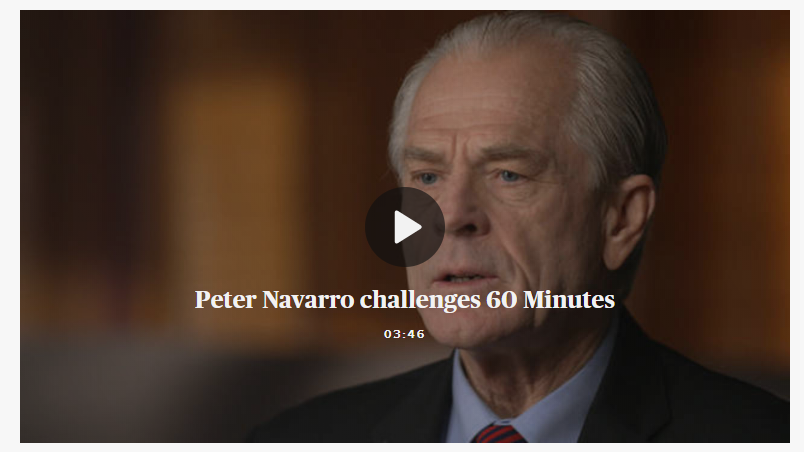

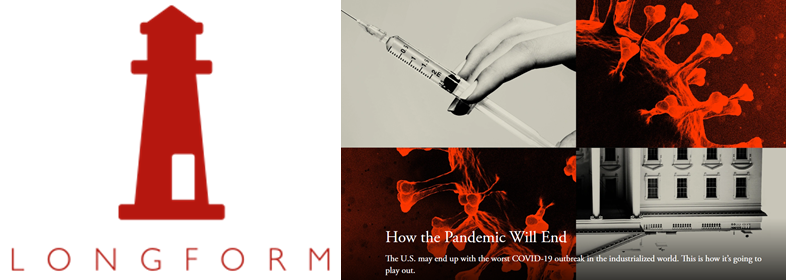

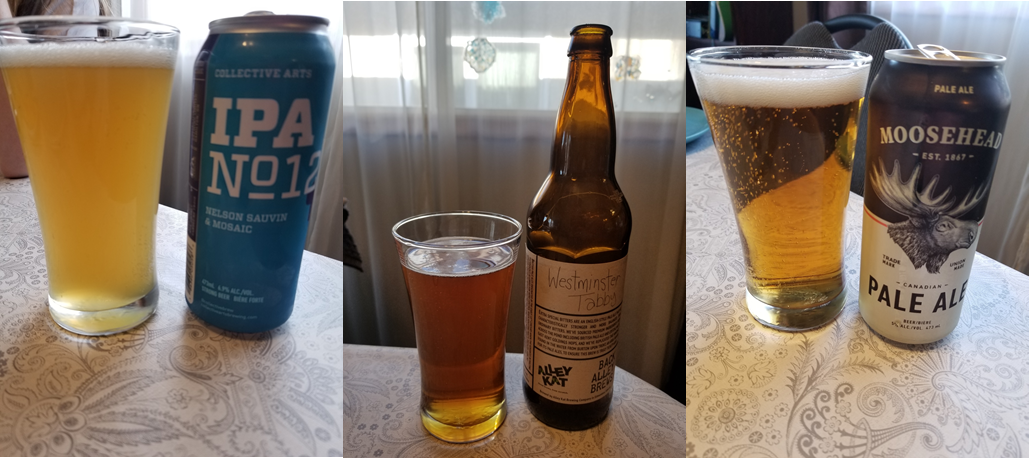
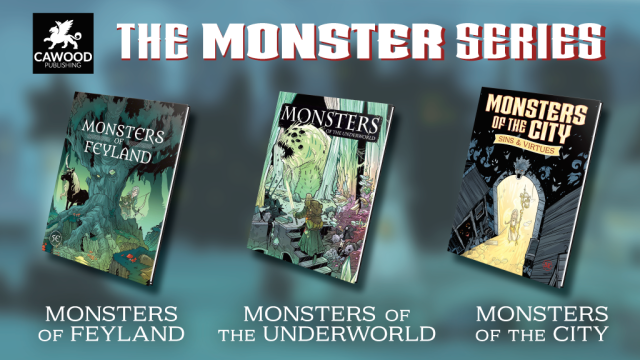


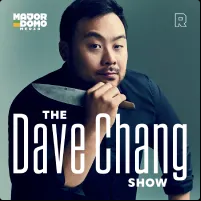
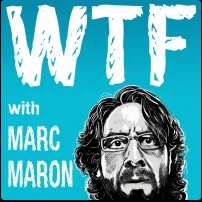
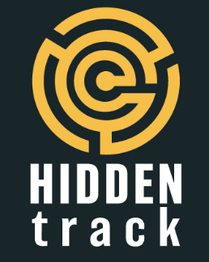
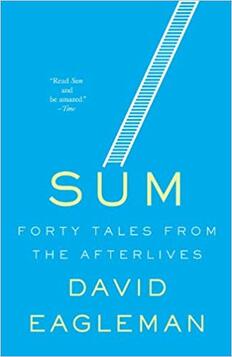
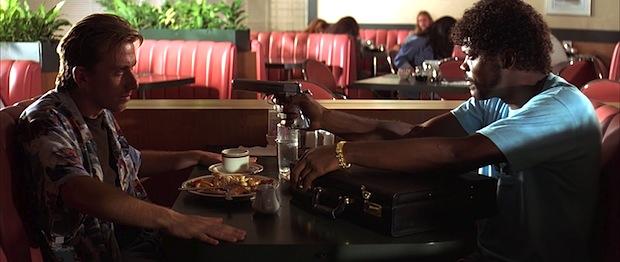
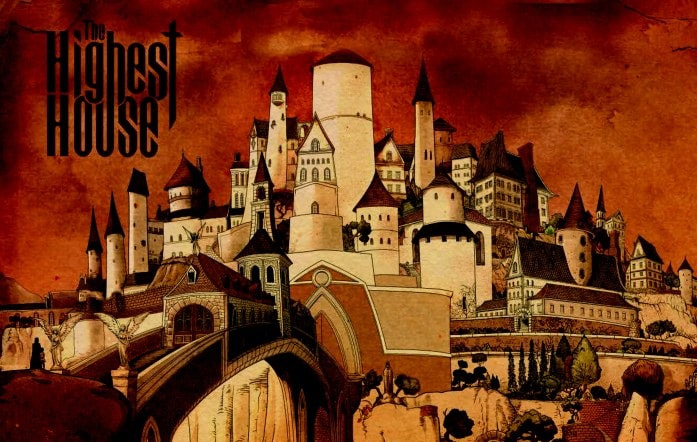
 RSS Feed
RSS Feed
